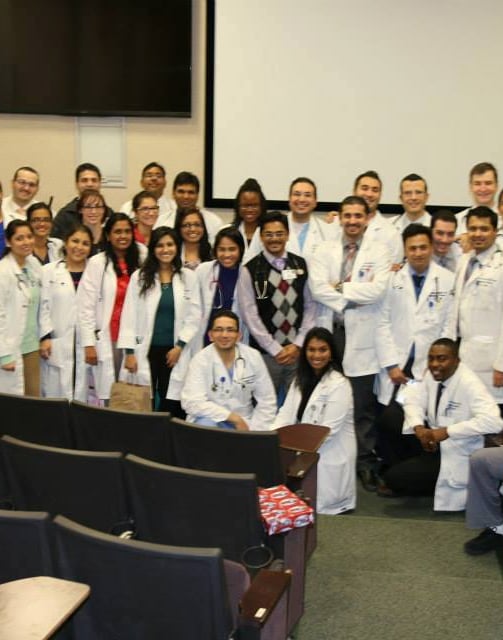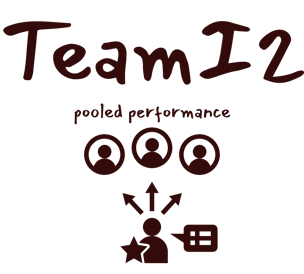What does it take ...?
Discipline
First and foremost is a disciplined daily work ethic.
Start early (6m into your residency would be perfect), network, gather information and set your goals (should be daily, weekly, monthly and sometimes 3-months & 6-months goals).
Commit to work, fail, learn from failures, work again, fail again, but keep moving towards achieving the goals.
Dont stop, just dont ...
Key: have to work on your goals DAILY... No excuses


Goals
What are the goals ...? kinda depends on the following:
Current residency program.
How great is your CV, your research experience, publications?
What visa are you on?
Do you know a well-known mentor who can make a call to support your fellowship application?
Key: ensure your goals to achieve are complete and reasonable


Residency
You know GI fellowship is tougher if you are currently in a small community internal medicine residency program.
Not to worry, I too was (in fact my program currently does not exist, due to financial reasons).
So, what to do, uhn? Reach out to your program director and seek help - to plan away rotations, away electives in GI.
Try to be the best resident in your program director's list. A strong letter from your PD (or even better, a phone call) will get you far ahead in the competition.
Get info from your seniors, just in case if anyone matched into GI from your community program.
Key: be the best resident in your PD's list


Network
Network, know people, meet people, and grow your go-to circle.
Attend GI conferences, like DDW, ACG; and once you get to know more people, plan AASLD, Crohn's & Colitis foundation & others (I hear Scrubs & Heels is a great place to network, especially for female aspirants) (click here for details on GI conferences).
Goal should be to make as many contacts as possible and gather as many research ideas as possible from conferences. There is no point in learning GI stuff at this stage.
Be highly FOCUSSED to achieve maximum BENEFIT for your time, and more importantly make sure to follow-up with the people you meet & connect.
Key: follow-up with new connections


Publications
Everyone starts here, research & publications. However, make note of the key point that its not the research that counts, its the publication...!
I said it, didnt I? Of course, research experience is great, you learn a lot, it shows your interest, commitment etc., but I personally dont think it gets you across the finish line if you dont publish.
And, you have to be the lead/ first author. Publish in such a way that PubMed site crashes down..!!
Plan based on what you can achieve and do it in such a way that you overwhelm people, your mentor and the system.
I did it using meta-analysis, and Dushyant (1st yr GI fellow, Univ-of-Kansas) did it via NIS database & review articles. Whatever the route, you HAVE to be the lead author!
I personally dont believe it matters to collaborate with big places like Harvard, Mayo or John Hopkins, if you are not the lead author (now Lovekirat Dhaliwal -1st yr GI fellow, Emory Atlanta - might disagree).
Key: you have to be the lead-author


Out of box
Definitely think & do out of the box, to beat your competition, to stand out, and more importantly to be remembered (by the GI program).
Use Twitter and exploit #GITwitter. We all know and remember names of people just because of how active they are on twitter.
Highlight any special, unique talent you have. Again, the goal is to be remembered and stand out among the massive number of applications.
Use all and any social media platform to highlight your talent. It could be even tik-tok, you know!
Publicize your publications and advertise yourself along with your publication. Share a 2-3 liner teaching point from your study.
Key: make yourself known (of course in a good way)


Visa
Obviously does not apply to green-cards and citizens, but visa can be a negative factor, that can be overcome though!
You ask how? Well, I got into my GI fellowship on H1b visa in a program that does not sponsor H1b visa! It was unintentional however.
Goes without saying that you have to check GI fellowship program requirements before you apply.
Reach out and connect with people who matched on H1b visa, J1 visa and gather as much pertinent information as you can.
If you are a hospitalist, then I recommend you plan for your green-card before applying for your GI fellowship. Click here for details on green-card (EB1A, EB1B).
Key: work on green-card as early as possible


Mentor
Finally, your plan towards a GI fellowship is not complete without a mentor. The person, who can guide you towards your goal, give that extra push, who is well-known and who can make that phone call for you, if needed.
Short-list such people and discuss with peers, recent GI-matched candidates before you make your approach to work with them. Key is to find the person who has a history of making calls for their mentees (of course this is only if needed).
Plan and approach when you are 'ready and loaded' to make that overwhelming impression. So, not a bad idea to wait and get yourself ready with some research papers before approaching a mentor.
You could diversify with multiple mentors, or have one (as I did). Do not miss my point of overwhelming your mentor with your work. Only then you can expect a strong letter, and that phone call.
When I approached Dr. Adler the first time, I had 5 papers all written-up and ready..!
Key: overwhelm your mentor


Chief
Many thanks to Dr. Yuvaraj Singh (1st yr GI fellow - UMass) for this section
How does being a chief resident affect GI fellowship application? Well, this is a very tricky question. The honest short answer is it depends on the program.
A PGY-4 chief year demonstrates dedication and commitment. While interviewing with programs, make sure you convey the roles and responsibilities of your chief year.
To get an idea, survey the programs you are interested in and research the current fellows. Is there a chief resident every year?
I know residents match without a chief year, and residents can go un-matched in-spite of doing a chief year. So it also comes down to how you utilize the extra year to work on your research, network and improve your overall profile in becoming a competitive applicant.
Most residency programs select their chief residents well in advance (during 2nd year of residency). So plan in advance, especially if applying out of your program. IM residency programs in New York are well known to accept applications for chief resident from outside.


Other
Other paths can be explored, which are mostly employed to strengthen your application for next cycle, if you did not match first time round.
One-year programs, such as Transplant Hepatology, IBD, Nutrition, Medical Pancreatology are the available options.
Many friends got into a GI fellowship via these options and this one-year experience always makes you a better gastroenterologist in the long run.
Good old Hospitalist option is also okay as long as you are involved and engaged in doing GI related research, and keep strengthening your application profile.
I was a hospitalist for 5-years before matching into my GI fellowship, and my friend Pranav Patel (who matched into GI fellowship 2023 start), was a hospitalist for 7 years.
Key: persist


Which one
Many thanks to Dr. Yuvaraj Singh for this section
Many applicants debate between a year of hepatology fellowship (or IBD, medical pancreatology) to chief residency. While there are several arguments one could make, the short answer is that both display commitment and are equally effective in helping you.
This would be a good time to create a list of pro’s and con’s. Are you interested in doing a hepatology fellowship after GI? Are you keen on matching at a very specific program for personal reasons? Does the program take candidates from their home hepatology fellowship/ or other hepatology fellowships?
If your answers is yes to any of the above, then that might be the best course of action.
One more essential component is to check if the program will sponsor a J1 visa, if you are on one. Over the years, the number of programs able to do this is on the decline. Contacting program coordinators in advance will help you form a better understanding of your options.


YOU..!
IMPORTANT: no one will support you if you are not a nice person! True isnt it? With multiple publications and stellar CV, no program likes to have someone who is a pain to work with for 3-years.
So, humility, personality, cheerfulness, openly accepting your failures and improving on them, helping, and just being the person that people like to be with, are virtues to focus on.
Just like research & publications; there is no point in having the virtues inside four walls and no one knowing about it. Figure out a way to make people notice your personality and not write you off as an arrogant at the same time..!
Remember, there is no other person like you on this planet, and that makes you unique... (I mean if you dont have an identical twin, LOL)
Key: have a friend who can point out weakness in your personality


Finally
Phew, is that all it takes to get into a GI fellowship...!?
Publications & strong mentors are the two most important factors in my opinion.
Please feel free to add your inputs that I might have missed (please submit your inputs on contact page and I will acknowledge you for your contribution).
The sweat and hard work is worth it my friends. GI is a wonderful speciality of medicine to make your career in US. I am sure every GI person would agree on this.


GI fellowship
Short video about matching into GI fellowship in USA
under construction
Watch out this space for real-life video anecdotes on GI fellowship match


